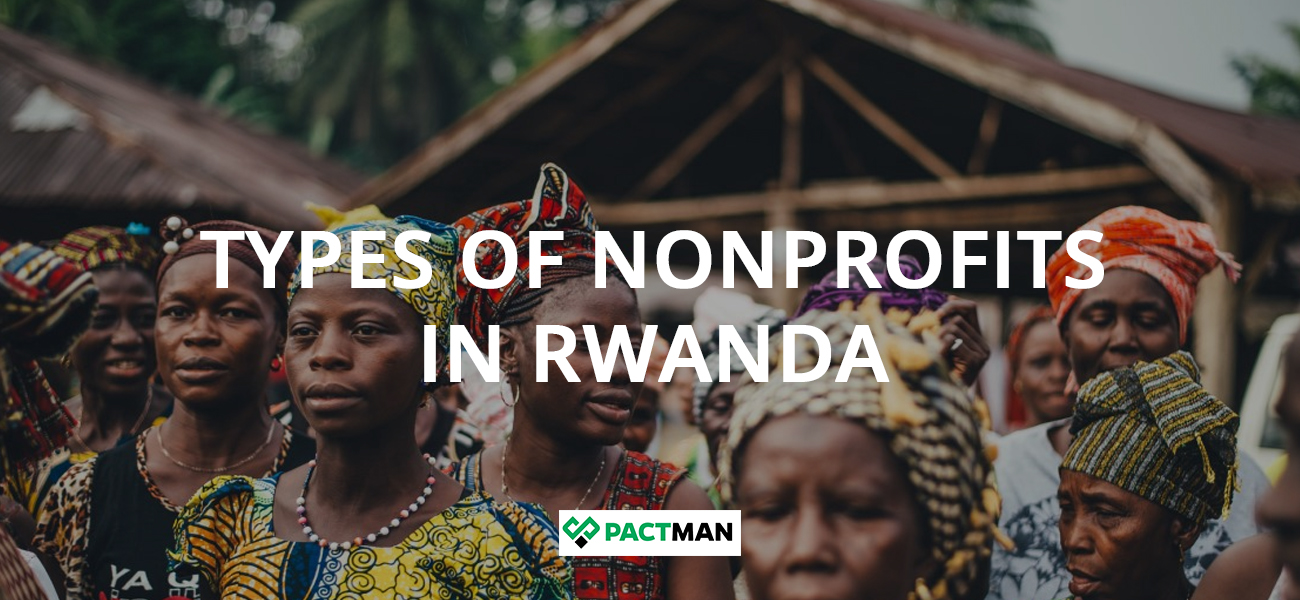Civil society organizations in Rwanda are often referred to as nongovernmental organizations. A large number of the various types of nonprofits in the country are involved in humanitarian activities. The sector over the years has witnessed a steady recovery from the 1994 genocide which critically ravaged the nation. With reports of over 800,000 death and millions of displaced citizens following the incident, Rwanda indeed depicts that true national recovery is obtainable.
In this article, we will outline the various types of nonprofits in Rwanda and their activities.

- Over 80 percent of nonprofits in Rwanda are involved in health and education activities
- More than 60% of Rwandan indigenes are said to live in rural areas with rain-fed agriculture as their livelihood
- Rwanda is the fourth largest UN peacekeeping contributor and women are said to hold 60% of parliamentary seats.
What are the types of Nonprofits in Rwanda?
Rwanda’s organic law recognizes three major classes of NGOs in the country. They include:
1. Local nonprofits: these types of nonprofits comprise nongovernmental organizations based in the country. The activities of local nonprofits are primarily centered on the improvement of the community where it operates. Local nonprofits also have a common objective and pursue a specific advocacy.
They are an important part of the community as they are more closer to the people and know how to serve the need of the society.
2. International nonprofits: these types of nonprofits are known to have unique missions and objectives which allows them to operate in different countries of the world. International nonprofits in Rwanda can be said to the most effective in the country as their capacity and operation are carried out on a large scale. These entities also perform activities in the area of human right advocacy, policy development, peace and security among others.
3. Religious nonprofits: these types of nonprofits are primarily established by churches and mosques. They can also be referred to as faith-based nonprofits as their mission tends to prioritize religious values.
Religious nonprofits provide services to the community and have a good understanding of the needs of the people. Their service majorly comprise education, poverty relief, medical assistance, among others. They also deliver effective development-focused programs.
The Rwanda Governance Board (RGB) is the governing institution that registers and monitor the operations of the three major types of nonprofits in Rwanda.
What are the statutory framework governing the types of nonprofits in Rwanda?
The Rwandan law defines nonprofit organizations as an association or institution that possesses a legal personality, governed by civic law, and is made up of physical or moral entities. The law also outlines that these nonprofit entities must perform social works and agree to use its knowledge or activities for a specific good other than making profit.
The primary objective of a nonprofit organization, according to the Rwandan constitution, is to perform philanthropic, scientific, religious, cultural or sporting activities. The entity may at a subsidiary level expand its area to more activities although the services being undertaken are not for profit.
Also, the various types of nonprofits may at any time by asked to provide data and documents on its activities by the governmental authority in charge of NGOs in the country. These information must be provided within a month.
Furthermore, all nonprofits income in Rwanda are subjected to tax exemptions. This includes grants, donations or investments.
How many nonprofits are in Rwanda?
According to NGO Explorer, Rwanda has over 555 nonprofits operating in the country. Also, over 80 percent of these nonprofits are involved in health and education activities while 20 percent undertake other social services.
More than 60% of Rwandan indigenes are said to live in rural areas with rain-fed agriculture as their livelihood.
The country continues to record groundbreaking development following the the 1994 genocide that led to the killing of over 800,000 Rwandan citizen and the women experiencing severe gender based violence. Rwanda is currently the fourth largest UN peacekeeping contributor and women are said to hold 60% of parliamentary seats.
One major trend that characterizes the nonprofits in Rwanda since the genocide is their impact in addressing key issues of specific groups in the country. Some are known to advocate for the rights of vulnerable groups in the community like widows, orphans and children. Others are also known to promote the wellbeing of vulnerable citizens.
Conclusion
Rwanda clearly depicts that a nation regardless can rise and recover from the devastation that once plagued it. The various types of nonprofits in the country have become major contributors to the recovery of the nation. This is most especially in the area of humanitarian assistance.
There is nonetheless more that can be done to improve the development of the nonprofit sector. This is most especially in the area of public policy development. A large number of nonprofits in the country are not contributing to reframing public policies. Hence, their activities and capacities are quite limited. Their interaction with the government as well is said to be ineffective. Hence, nonprofits in Rwanda must seek ways to influence policy and regulations in order to create better system for the society.
If you enjoyed reading this article, share your comment or suggestions with us at the bottom of the post. We would love to hear from you.


